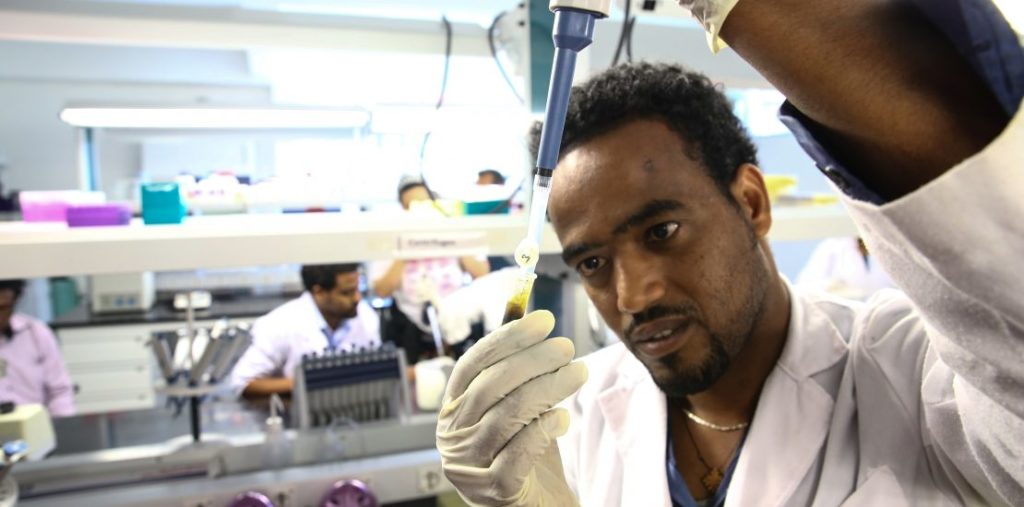
The COMESA Secretariat will in 2020 support the revitalization of the Regional Policy on Biotechnology and Biosafety under the Alliance for Commodity Trade in Eastern and Southern Africa (ACTESA). Assistant Secretary General for Administration and Finance Dr Dev Haman revealed that the Secretariat will also support ACTESA in having its first meeting for the new board aimed at rebooting the institution.
He was speaking recently in Lusaka when a delegation from the region on Biotechnology and Biosafety led by the Chief Executive Officer at the National Biosafety Authority of Kenya Prof. Dorington Ogoyi paid a courtesy call on him.
“The Secretariat is committed to revive the biotechnology programme and take advantage of the many benefits that come with it,” Dr Haman said to the delegation in his office.
During the discussions, it was agreed that operationalizing the biosafety program will require institutionalizing a Regional Biosafety Risk Assessment mechanism.
This will ensure high-level policy support and commitment from Member States for safe and responsible use of modern biotechnology in agriculture. As an example, several COMESA Member States including Sudan, Kenya, Ethiopia and Eswatini have already given approval to start cultivating insect-resistant cotton and maize. Others are conducting field trials and could benefit from data sharing, capacity enhancement and biosafety decisions from lead countries.
COMESA/ACTESA Officer in Charge Dr. John Mukuka said the institution is currently reviving its operations to come up with a revised ACTESA strategic plan covering the period 2020 to 2030. The overall goal of the new plan will be to enhance small-scale farmers access to agricultural input, output and financial markets through improved policy environment, expanded market facilities, services and capacity building.
He stated that the COMESA policy on Biotechnology and Biosafety mainly addresses Genetically Modified Organisms (GMOs) in transit, low-level presence of GMOs, commodities for food, feed and processing and handling emergency food aid with Genetically Modified (GM) content.
“There is need to revive the biotechnology and biosafety harmonization program within COMESA in view of the emerging challenges from recurrent drought in the region and new pests like the Fall Army worm devastating our staple crops,” Dr Mukuka added.
Former COMESA/ACTESA Senior Biotechnology and Biosafety Advisor Dr. Belay Getachew said ACTESA facilitated the development of a common biotechnology and biosafety policy implementation plan commonly referred to as “COMBIP” which was validated in 2015 by the Council of Ministers after nearly 10 years of consultations by Member States.
Members in the delegation that visited Dr Haman included Dr. Charles Mugoya, Chairperson National Biosafety Committee of Uganda, Dr. Margaret Karembu Africa Director of International Service for the Acquisition of Agri-biotech Applications (ISAAA AfriCenter), Dr. Enock Warinda, Deputy Executive Director at the Association for Strengthening Agricultural Research in Eastern and Central Africa (ASARECA) and Dr. Francis Nang’ayo, Senior Manager and Head of Regulatory Affairs at the African Agricultural Technology Foundation (AATF).
Others are Dr Lilian Chimphepo focal point for biosafety responsible for coordinating biosafety issues in Malawi, Mr. Mudenda, Regulatory Head for Southern Africa at Syngenta Crop Protection and board member of African Seed Trade Association and Mr Lackson Tonga, Chief Executive Officer at the Zambia National Biosafety Authority.


One Response
Hi, this is a comment.
To get started with moderating, editing, and deleting comments, please visit the Comments screen in the dashboard.
Commenter avatars come from Gravatar.